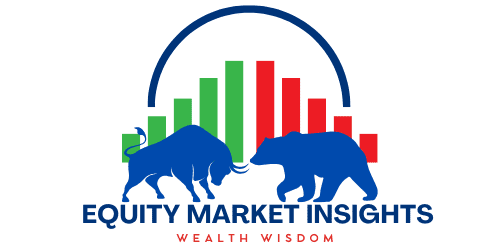To be an intelligent investor doesn’t require a stratospheric IQ. It does require discipline and the ability to think for yourself.
Individual investors are “scarcely ever” forced to sell stocks or funds and—unlike professional portfolio managers who are continually measured against the market—are never compelled to care what other investors are doing.
That independence is your single most valuable asset, a luxury most professional investors can only dream of possessing. It’s what is called the “basic advantage” of the intelligent investor.
But, “the investor who permits himself to be stampeded [by other people’s behavior]…is perversely transforming his basic advantage into a basic disadvantage.”

Overview of Contents
The Noise of the Digital Age
In today’s incessantly twitchy, infinitely networked markets, the siren song of smartphones, social media and streaming video can tempt you to trade more and copy the crowd. It has never been harder to be a disciplined and independent investor.
Own a soaring stock you can chat about online with thousands of other people who love it, and you’ll feel you belong to a pride of lions. Own a falling stock that nobody wants to touch, and you’ll feel like a skunk at a garden party. You probably wouldn’t eat at an empty restaurant, purchase a product that has no positive online reviews or buy a house nobody else will bid on.
Yet crowds aren’t always right, and their errors are contagious. What separates the wisdom from the madness of the crowd?
The Rise of Finfluencers and Speculative Herding
“Finfluencers” like P R Sundar, Ankur Warikoo and others can set off stampedes, crushing cognitive diversity as countless people rush to emulate them.
Whipping each other into a frenzy, online packs of investors hold on for dear life to fading stocks like Gensol, Brightcom—or drive a hot stock like Panacea Biotec, up more than 340% this year, to heights that may be unsustainable.
There are no barriers to entry, no way to authenticate claims of expertise, and no registry of how accurate the opinions are. That can degenerate the wisdom of the crowd into madness.
The price of a stock doesn’t change with people’s estimates of it. However, if thousands of speculators decide a stock is worth Rs500, it will skyrocket—at least temporarily—even if it’s worthless.
Echo Chambers and Subconscious Influence
Joining the crowd can change how you think, no matter how much you pride yourself on your independence. That’s especially insidious because it occurs subconsciously.
One recent study found that investors on social media are five times more likely to follow users who agree with them and will see nearly three times more messages they agree with than disagree with. Falling into such an echo chamber, the study showed, leads people to trade more—and earn lower returns.
Meanwhile, bucking the consensus engages circuits in the brain that generate pain and disgust. Experiments have shown that when you find out your peers disagree with you, your choices become up to three times more likely to match theirs, although you have no conscious awareness of being influenced.
In today’s digital world, those influences have morphed into tools designed to kidnap your attention, corrode your patience and kill your ability to think for yourself.
The Gamblification of Investing
The companies behind Zerodha, Groww in India or Robinhood in USA and other popular trading apps often describe them as “gamification.” A more accurate term would be “gamblification.”
These trading apps are fun to use, but have three pernicious features. They are designed to encourage short-term trading. They are potentially addictive. And they rely on manipulative techniques perfected by the gambling industry: frequent alerts notifying you of big moves and goading you to trade.
These apps also prod users into buying and selling options contracts, which can be riskier—and are far more costly to trade—than stocks. A study found that seeing a weekly list of top-traded stocks led participants to increase their trading of those stocks by 14%.
Instead of seeking to fulfill their own financial goals, they will strive to beat everybody else, becoming up to twice as likely to buy a risky stock. The people who run your online brokerage know all this. That’s why they want to hook you on their apps. The more time you spend on your device, the more often you’re likely to trade, enriching the brokerage instead of yourself.
How to Guard Your Independence
Because you may never realize how much a group is influencing your decisions, it’s vital to protect yourself before you join the crowd. Seek out patient, like-minded investors. In online stock market chatting communities, look for posts that:
- steer clear of hot takes on the latest headlines;
- avoid anger, boasting and mockery;
- and reveal their sources by linking to long-term data and peer-reviewed research, rather than just making assertions without evidence.
Instead of investing based on the whims of the crowd, follow policies and procedures.
Checklist for Independent Investing
If you have views about which asset or investing strategy is right for you, write down your reasoning before you explore what some online group is saying.
Take no action without reviewing your original rationale and determining that there’s a reasonable basis for changing it—grounded in independently verifiable evidence, not just the opinions of random people online. Use a checklist to focus on the stability of the underlying business rather than share-price movements.
- Have I read the company’s financial reports?
- Do its executives admit mistakes, use conservative accounting and avoid hype?
- Have I written down at least three reasons why this is a good business that will be even better five years from now?
- What, exactly, do I understand about this company that most other investors are missing, and why?
After thoroughly filtering companies, put your favorites on a watchlist. Set limit orders in your brokerage account to buy them automatically if they drop, say, 25% in price. That way, you lock yourself into doing the opposite of the crowd.
